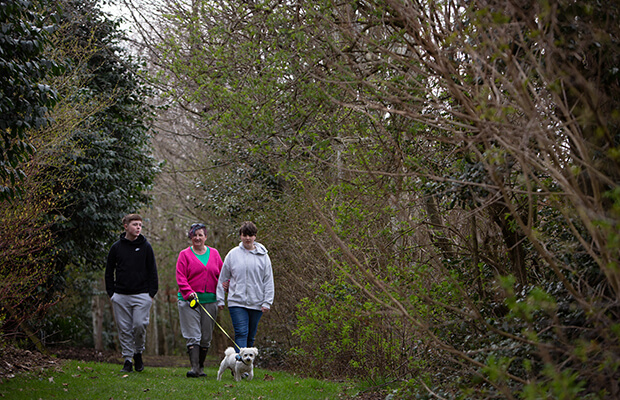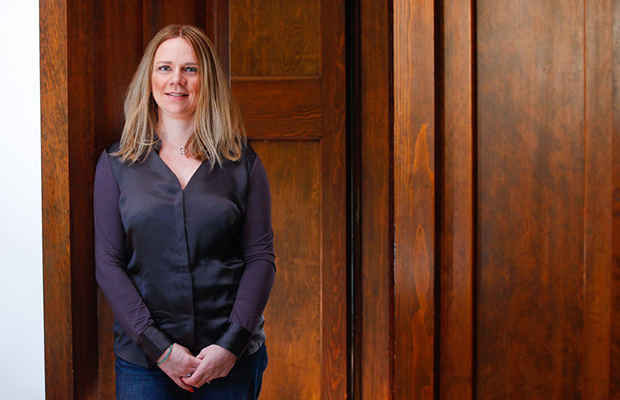“When I was small I had lots of time in and out of hospital. At that time parents weren’t allowed to stay with children in hospital, so I felt alone and scared. I think that’s had a long-lasting effect on me. I find any hospital stay really upsetting, especially at the end of visiting time. I have this feeling of abandonment when people leave.
I had my first surgery to close the hole in my heart when I was nine. After that I had energy, I got into dancing, karate and playing with other kids, and I didn’t have to take medication any more.
But I had missed a lot of school, and I fell behind. It had a lifelong effect – without many qualifications I did cleaning jobs and worked on my brother-in-law’s market stall. Then as an adult I went back to college, doing night classes, to improve my education and get a better job. I’d had two daughters when I was quite young and I wanted them to see that if you work hard you can reach your ambitions.
I felt I had reinvented myself

After studying social care, I worked as a nursery teacher, then in a job supporting people in the community and eventually I became a civil servant. So I did improve my situation and my confidence. I felt like I had reinvented myself.
I met a new partner in 2007 and I got pregnant for a third time. My pregnancies with my girls had been fine but with this one I retained lots of fluid, and I was diagnosed with heart failure. My son was delivered a few weeks early by caesarean section because of the strain of pregnancy on my heart.
I wasn’t well after the birth and needed surgery to repair one of the valves in my heart. My mental health took a dive after that, and my GP put me forward for cognitive behavioural therapy. It helped me deal with difficult thoughts and improved the way my husband, Rob, and I communicated. We would say to each other: ‘Is there anything you want to talk about? Is there anything you are worried about?’ It’s important to get worries off your chest, especially before you go to sleep.
Get support with your health and wellbeing
Sign up to our fortnightly Heart Matters newsletter to receive tips on coping with difficult emotions, looking after your health and living well. Joining is free and takes two minutes.
I’d like to sign-up
Meeting people like me
The other thing that’s helped me was going along to a meeting for people with congenital heart conditions a few years ago. I thought: ‘They are just like me – they have had surgery like me, they have got stories just like me’. We keep in touch, and I don’t feel so alone any more.
Showing my scars made me feel empowered
We did a photography project together, Scarred for Life through the Somerville Heart Foundation, where we had our scars photographed and it was shared in places all around Scotland to raise awareness. It made me feel empowered.”
What to read next...








